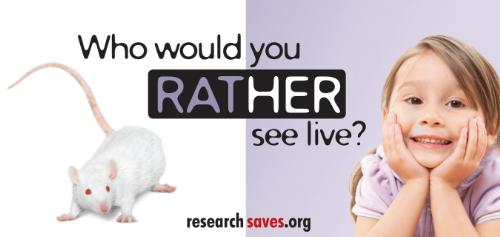Circular Argument
A circular argument is one in which the conclusion is essentially the same thing as the step or steps which go beforehand. In other words, the conclusion is already part of the preceding argument. The form of a circular argument usually goes like this: A is true because B is true; B is true because A is true.
Examples:
- Only intelligent people use our product because they’re smart.
- Those who criticize the government are unpatriotic and only unpatriotic people criticize their government
Argument from Authority
We trust the knowledge that comes from experts in their fields. And we are right to do so. However, we shouldn’t trust people who call on experts to prove a point when those experts have nothing to do with that field. When people allude to a more vague kind of expert by saying things like “studies have shown…” or “experts say…”, we need to be very doubtful. Marketers, for example, are particularly fond of dressing actors up in white coats to try and get us to believe that what they are selling is “scientifically proven”.
Whether it is teachers, parents, politicians, advertisers, the news or even Einstein, just because an ‘expert’ says it is true, doesn’t make it true.
Questions to ask:
- Who is this authority?
- Are they really an authority in this field?
- Is what they are saying related to their field of expertise?
Slippery Slope
A slippery slope argument is a favorite of teachers and parents who say things like: “No, you can’t go to that party, because I doubt there will be any supervision. Sooner or later someone will distribute drugs and then you’ll all start mainlining. Before I know it, I’ll be at your hospital bed.” – or, “If you fail this test, it will severely affect your semester mark. If you get a poor semester mark, you are likely to do poorly this year. If you do poorly this year, you will very likely not get into university and then you will be a beggar for the rest of your life.”
The slippery slope argument starts with a fairly innocuous event and extrapolates to a series of consequences – ending in an absurd conclusion.
Questions to ask:
- Will that really be the inevitable consequence of this action or event?
- Are you telling me that this starting event will unavoidably end in that final event?
Black or White Fallacy (False Dichotomy)
This fallacy seeks to reduce a complex issue down to one of two choices. Usually, one of these choices is also discredited or made to seem unappealing, and so the other option must be correct. This is a fallacy because issues can seldom be reduced to just one either / or choice.
Questions to ask:
- Are these really my only two choices?
- What other options are there?
Cherry-Picking
Cherry-picking involves selecting evidence that supports your case while ignoring the evidence which doesn’t. This is often done intentionally, but more often it isn’t. When done subconsciously, it is more likely to be confirmation bias: the tendency we all have to prefer evidence that matches what we already believe.
Cherry-picking is a more intentional method of deception where evidence which does not support your position is ignored and only those juicy, red facts which support your viewpoint are selected.
Cherry-picking is a favorite tactic of denialists of all types as well as any conspiracy theory. Ignoring inconvenient evidence might make for an interesting story, but it is illogical and incorrect to base any kind of argument or belief only on opportune, cherry-picked information.
Questions to ask:
- What counter-evidence is there?
- What are you overlooking?
- If you were arguing from the opposing point of view, what evidence would you use?
Ad Hominem
Ad hominem means ‘against the person’ and involves a situation where a person’s character or personal traits are attacked as a way of attacking their argument. It is illogical to think that attacking the person making the case for or against something in any way discredits the ideas they are conveying.
Some examples:
- Donald Trump’s hair is in a worse state than South Africa. He doesn’t get to say anything about us.
- How can you tell me that smoking is bad for me? You’re a smoker yourself!
- Your grammar stinks: you don’t even know the difference between ‘there’ and ‘their’. How can we believe anything you say?
Red Herring
Using something entirely unrelated to distract attention away from the real issue.
Have I told you about cognitive biases yet? They are just as interesting as logical fallacies. As a highly intelligent, good-looking and richly talented person, you will find these amazing. Check out this link:
http://wiki.lesswrong.com/wiki/Bias
Learn a bit more about fallacies here:
https://yourlogicalfallacyis.com
http://www.nizkor.org/features/fallacies/












